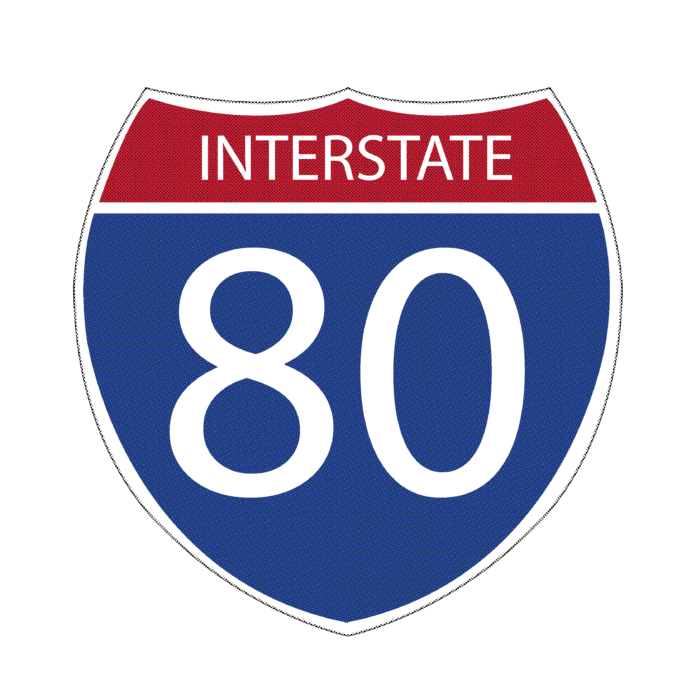Caltrans proposes to improve traffic and safety on I-80 between Davis and Sacramento
BY EMMA CONDIT — city@theaggie.org
The California Department of Transportation (Caltrans) has proposed a project to improve safety and congestion on Interstate 80 (I-80) between Davis and Sacramento. If approved, construction would begin in October of 2024.
The project would be funded in part by an $86 million grant from the federal government, as well as state-matching funds which would cover additional costs. The Caltrans website states that the total estimated cost will be $230 to $465 million, depending on which plan is chosen.
Sacramento’s population has increased significantly in the last 15 years. Since 2010, the Sacramento area’s population has increased by 15 percent, as opposed to California’s 5 percent. The majority of new residents have come from the nearby Bay Area, and this growth is not predicted to slow any time soon.
Autumn Bernstein, the executive director of the Yolo County Transportation District, explained the goal of the project and talked about this population growth
“[The I-80] is already one of the worst bottlenecks in Northern California,” Bernstein said. “With the kind of population growth that we’re seeing, congestion is expected to get worse. If we do nothing, it’s not like it’s going to stay the same. It’s actually going to get worse because of the growth in both the Bay Area and Sacramento.”
Bernstein also shared that this Yolo County highway expansion project follows others that have already taken place in Solano County and the Bay Area.
Caltrans, in collaboration with Yolo County stakeholders, has proposed numerous policy alternatives for I-80. Each of these would create varying levels of efficiency and safety on this highway.
Policy alternatives include the construction of high occupancy vehicle lanes (HOVs), high occupancy toll lanes (HOTs), express lanes, direct connector lanes and transit-only lanes. Caltrans may also convert existing lanes into these managed lanes.
Many of these policy alternatives also include a component that would generate revenue for the county. Leo Morales, a design engineer for the project, pointed out the multiple benefits of fees from managed lanes.
“This [plan] creates revenue to mitigate traffic congestion,” Morales said. “It also provides benefits to other users that aren’t driving.”
In a toll lane, drivers who use the lane would be charged a fee. The fee amount would depend on the day’s traffic and would allow the lane to maintain a steady, fast speed. The revenue generated by the tolls would go toward the county.
“The toll revenue creates a source of funding that can be reinvested in transit,” Bernstein said. “The toll revenue would increase [the] frequency of buses on the causeway, improve service on the Capitol Corridor, offer discounted fares for both the YoloBus and the Capitol Corridor [and] improve the bike path along the causeway. It’s really to encourage and incentivize people to get out of their cars.”
As mandated by SB 743, Caltrans has also provided mitigation techniques to counter the increased driving capacity that would come from highway expansion and ease traffic. These include improving micro transit within Yolo County by subsidizing bus fares, promoting ride-sharing and increasing bus frequency during busy hours. Additionally, they propose building housing near transit — by creating affordable and accessible housing where jobs are, there is less need for people to commute on I-80 and to use cars.
This project is currently subject to public review and commentary. On Nov. 28, Caltrans held a public meeting at the West Sacramento Community Center, where residents asked questions and provided feedback about the project.
At the meeting, Yolo County residents brought up concerns about managed lanes. One resident raised concerns about inequality in traffic times, explaining that not all drivers can afford to pay fees in exchange for shorter driving times. Another resident was concerned that transit-only and carpool lanes would disadvantage truck drivers who fall into neither category.
Nicole Gonzales, a Sacramento resident who commutes to work in Davis, offered her thoughts on the project.
“I’m for the plan,” Gonzales said. “Construction is brutal, but I know in the long run it’s going to be beneficial. Tolls ease congestion significantly, and I’ve had a Fastrak for years. It’ll make a huge difference.”
Valeria Becerra Angulo, a fourth-year international relations major, commutes to school from Sacramento each day, and her drive takes anywhere from 25 to 60 minutes. She offered her thoughts on the construction of a new lane.
“I think it could potentially help,” Becerra Angulo said. “But people take up lots of space when they drive, and I think more patrolling or a designated lane for trucks would be better.”
She also pointed out the price she pays as a commuter.
“I already pay four dollars a day to park on campus,” Becerra Angulo said. “And I pay $50 a week [for] gas. I don’t want to pay more to be in a toll lane.”
Ultimately, Morales described the role of community feedback in the approval process.
“It’s essential. It’s also a legal requirement,” Morales said. “But we take this very seriously. We want to hear your feedback, we want comments and we’re hoping that we get positive and negative comments. We’re gonna accept all of them and consider everyone’s opinion.”
There will be another public meeting about the project on Dec. 13 at the Mary L. Stephens Library in Davis. The public circulation comment period will end on Jan. 5, 2024.
Written by: Emma Condit —city@theaggie.org




